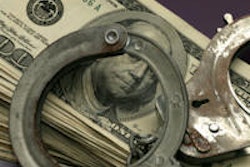
Although I have written about internal audit in these pages before, an event I attended in London inspires a return to the subject. The Institute of Internal Auditors met in early July at an exhibition and conference center located in the East End Docklands area of London.
The conference got off to a memorable start with a surprise five-minute video from His Royal Highness Prince Charles. His video focused on integrated reporting and sustainability, issues that HRH Prince Charles has championed through his Accounting for Sustainability (A4S) project and the International Integrated Reporting Council. His message delivered a strong call to action for internal audit professionals to "help shine a far brighter light on the risks we all face." Applied to dentistry, I am not sure what the prince means by "risk" -- a wet temporary crown that falls out 15 minutes later or financial record keeping reminiscent of the Flintstones?
 Thomas Climo, PhD, is a dental practice management consultant and a past professor of economics in England.
Thomas Climo, PhD, is a dental practice management consultant and a past professor of economics in England.A famous historian once said history is "one damn thing after another," which could pretty well sum up a day in the life of a dentist! And while the Flintstones might be relegated to history, the misapplication of economic concepts as practiced daily in the dental profession is alive and well. For example, I have yet to hear a single dentist express a coherent understanding of the importance of the role of depreciation to the income of his or her practice; nor have I seen any recognition (since QuickBooks does not have it as a year-ending line item) of why QuickBooks needs adjustment to include a line item for earnings before interest, taxes, depreciation, and amortization (EBITDA).
Given the breadth of topics at the conference, I was surprised not to find among them 1) how to do an internal audit, 2) the importance of doing an internal audit, and 3) why, despite the fallacious belief that internal auditing applies only to large companies, the internal audit is important to the legitimacy of the accounting for smaller companies as well.
To save, the reader the bundle of descriptions describing the internal auditing function, I will list seven of my own reasons as to why the internal audit should play an important role in the accounting for dental practices.
Bookkeeping in a dental practice is often performed on a daily basis by those untrained in QuickBooks or comparable software accounting systems. This means those who keep the books often learn this activity either by a two-hour session with a certified public accountant (CPA) or through online courses.
The end result of uninformed bookkeeping allows for incorrect, unlabeled, or wrongly categorized accounting entries to generate inaccurate accounting summaries.
This is a phenomenon that is a regular occurrence in dental practices owing to QuickBooks' inability to translate a year of record keeping into an acceptable and compiled balance sheet and income statement.
The manner dental practices take QuickBooks summaries and turn them into acceptable compiled balance sheets and income statements is through the appointment of a CPA who, in executing the compilation review, operates under the limiting objective of only putting accounting information into a uniform presentation, usually absent notes and certainly absent any opinion of the worthiness of the financial statements being compiled.
An in-house internal audit introduces a third party into the bookkeeping process, enabling inaccuracy in entries, summaries, and translations to year end to be caught so that a QuickBooks year-end statement is strengthened with a backdrop that has involved an examination of each of the following:
- Internal controls, including the detection of fraud and embezzlement
- Analysis of the data processing
- Random sampling of patient charts as to their accuracy and content
- Billing and collection procedures
- Other matters not to forget governmental-required record keeping in the instance of Medicaid services
In other words, the internal audit provides a safeguard for the compiler of the financial statement to have more faith in the accuracy of the bookkeeping.
More faith in the accuracy of the bookkeeping transfers to more faith in the financial statements of the dental practice by outside entities such as banks, insurance companies, and others who may have or may be thinking of having a vested interest in the future of the dental practice; also, it doesn't hurt for attracting associate dentists, either.
Loans for new acquisitions and increased credit lines for working capital, equipment, and supplies do not come from a tooth fairy but from solid and believable financial statements. (The notion of a tooth fairy comes from Warren Buffett's sarcastic reaction to excluding depreciation in the valuation of a company: "Does management think the tooth fairy pays for capital expenditures?")
To penny counters who scream: "And who pays for this internal audit or auditor?" I end with the same conclusion as before about the inexpensive financial assurance of an internal audit:
"The entire process ... took three days to finish, including half a day to write the report, attach ... audit findings, and pen the internal audit opinion. The total cost of the internal audit was $2,250.00."
"If it is assurance you hope to generate in yourself as dentist-owner, as well as those interested in your business ... you might want to think of spending a couple grand each year having an internal audit performed to lend substance and credibility to your financial statements."
Thomas Climo, PhD, is a professor emeritus of accounting and finance at a major university in the U.K. He has published extensively about the importance of modern managerial and financial decision-making for dentistry. He is a consultant to corporate and solo practitioner dental practice management companies in the states of Arizona, California, Connecticut, Nevada, New Hampshire, New York, and Massachusetts. He can be reached by email at [email protected] or by telephone at 702-578-2757.
The comments and observations expressed herein do not necessarily reflect the opinions of DrBicuspid.com, nor should they be construed as an endorsement or admonishment of any particular idea, vendor, or organization.



















